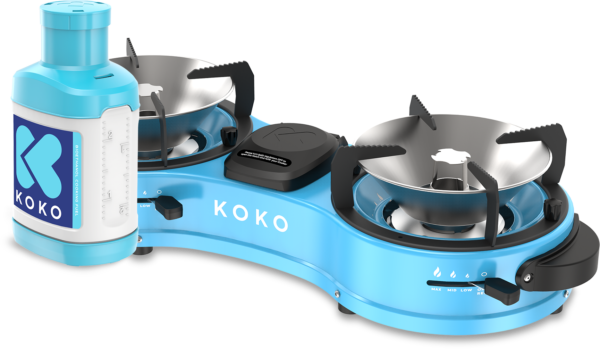Koko Cooker Disadvantages: A Comprehensive Analysis Leave a comment
The Koko Cooker is a two-burner stove that runs on liquid bio-ethanol fuel, offering a more affordable and sustainable alternative to traditional fuels like LPG gas.
While the Koko Cooker has several advantages, such as lower initial and running costs, safer and more sustainable fuel source, and efficient cooking capabilities, it also has some disadvantages that should be considered before making a purchase. In this blog post, we will discuss each downside in detail.
Koko Cooker Disadvantages
Limited Availability
One of the main disadvantages of the Koko Cooker is its limited availability. The Koko Cooker is primarily available in Kenya, where KOKO Networks has over 700 stores in down-market areas of Nairobi.
While the company aims to expand across the continent, it may still be challenging for some households to access the Koko Cooker due to its limited distribution network.
Fuel Availability
Another disadvantage of the Koko Cooker is the availability of its fuel source. Liquid bio-ethanol fuel is not as widely available as traditional fuels like LPG gas or kerosene. This means that users may have to travel further to find a refill station or rely on online delivery services, which may not be as convenient as refilling a gas cylinder at a local store.
Fuel Efficiency
While the Koko Cooker is designed to deliver a more consistent flame, resulting in faster cooking times and less wasted energy, it may not be as fuel-efficient as other cooking methods. For example, traditional biomass stoves can be more fuel-efficient, as they can use a variety of biomass materials, such as wood, charcoal, or agricultural waste, which are often more readily available and cheaper than liquid bio-ethanol fuel.
Maintenance and Repair
The Koko Cooker’s technology may require more maintenance and repair compared to traditional stoves. For example, the proprietary filling system used by KOKO Networks may need regular maintenance or replacement, which could add to the overall cost of ownership. Additionally, if a part of the stove breaks down, it may be more challenging to find a local repair service, as the Koko Cooker is not as widely used as other cooking methods.
Environmental Impact
While the Koko Cooker is considered a more sustainable fuel source compared to LPG gas, it still has an environmental impact. The production of liquid bio-ethanol fuel requires the conversion of biomass materials, which can contribute to deforestation and other environmental issues if not managed responsibly. Additionally, the disposal of used bio-ethanol fuel containers may also pose environmental challenges if not properly managed.
what is the price range of the koko cooker?
The price range of the Koko Cooker is as follows:
- The Koko Cooker Kit is priced at Ksh 4,500, which includes the 2-burner Koko Cooker, Koko Canister, 2 Free Koko Canisters of Fuel, and Ksh 100 to buy Koko Fuel.
- Another source mentions the price of the Koko Smart 2 Burner Cooker as Ksh 2,021.
- An article from New African Magazine states that Koko’s two-burner ethanol stoves cost just $65.
- A LinkedIn post mentions that the initial cost of the Koko Cooker is Ksh 1550, which is significantly lower than the initial cost of an LPG gas cylinder.
In summary, the price of the Koko Cooker ranges from Ksh 2,021 to Ksh 4,500 and $65, making it a relatively affordable cooking solution compared to traditional fuels like LPG gas.
Wrap!
While the Koko Cooker offers several advantages, such as lower initial and running costs, safer and more sustainable fuel source, and efficient cooking capabilities, it also has some disadvantages that should be considered before making a purchase.
These include limited availability, fuel availability, fuel efficiency, maintenance and repair, and environmental impact. By understanding these disadvantages, potential users can make an informed decision about whether the Koko Cooker is the right choice for their cooking needs.

